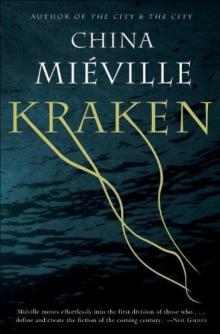- Home
- China Miéville
The Scar Page 27
The Scar Read online
Page 27
Of course it was still vague whisperings. Carrianne had mentioned something about someone who had doubts about the Summoning, who had read a pamphlet put out by someone known as Fink or Fitch or Fench. Shekel told Bellis that he thought the Summoning was an excellent idea but that he’d heard that someone called Fench said that the Lovers were heading for trouble.
Bellis was still amazed at Silas’ ability to insinuate himself under the city’s skin. Was he not at risk? she wondered. Weren’t the Lovers searching for him?
She smiled to think of Shekel. She had not been able to continue with his lessons for some time now, but when he had recently visited her he had taken a few quick, proud minutes to show her that her help was no longer necessary.
He had come to ask her what was in Krüach Aum’s book. Shekel was not stupid. It was clear to him that what he had given her must be related to the sudden tumultuous events of the last week—
the cascade of leaflets, the extraordinary plan, Tanner’s bizarre new commission.
“You were right,” she had told him. “It took me a while to translate the book, but when I realized what it was—the account of an experiment—“
“They raised an avanc,” Shekel had interrupted her, and she had nodded.
“When I realized what the book was,” she went on, “I made sure that Tintinnabulum and the Lovers saw it. It was something that they needed, part of their plan . . .”
“The book I found,” Shekel had said and begun to grin
incredulously.
In the Custody Aeroworks, a massive framework of wires and curving girders was taking shape.
At one corner of the enormous room there was a heavy
cloud of buff-colored leather. A hundred men and women sat around its edges, thick finger-long needles in each hand, stitching ambidextrously. There were vats of chymicals and resin and gutta-percha to seal the enormous gasbags. Wood frames and metal
incandescent from forges were beginning to take the outlines of control and observation gondolas.
The Custody workshop, big as it was, could not contain this commission in its final form. Instead, all the finished components were to be lifted onto the bare deck of the Grand Easterly, where the bags would be inserted, the sections of skeleton riveted together, and the leather covering stitched into place.
The Grand Easterly was the only ship in Armada big enough
for that.
It was Chainday the twentieth, or the seventh Skydi of Hawkbill—Bellis no longer cared which. She had not seen Silas for four days.
The air was warm and thick with birdsong. Bellis felt claustrophobic in her rooms, but when she left to walk the streets the feeling did not ebb. The houses and flanks of ships seemed to sweat in the sea-heat. Bellis had not changed her opinion of the sea: its size and monotony affronted her. But that morning she suddenly and urgently needed to get out from under the city’s eaves.
She was reproachful with herself for the hours she had waited for Silas. She had no idea what had happened to him, but the sense that she was alone, that he might not be coming back, had hardened her quickly. She realized how vulnerable she had become, and she reerected a wall around herself, like bone. Sitting and waiting like a fucking child, she thought furiously.
The yeomanry came for her every day, took her to the Lover and Tintinnabulum and the Castor’s hunters, and to committees whose roles in the Summoning she did not understand. Her translation was scrutinized and picked apart: she had to face a man who read High Kettai, though not so well as she. He had demanded intricate details: Why had she chosen this tense, this part of speech? why had she rendered this word in this way? His manner was
combative, and she took a small pleasure in undermining him.
“And on this page here,” he had snapped in one typical exchange, “why render the word morghol ‘willing.’ It means the opposite!”
“Because of voice and tense,” she had responded without apparent emotion. “The entire clause is in the ironic-continuous.” She had almost added It’s common to mistake it for the pluperfect, but had contained herself.
Bellis had no idea what all this grilling meant. She felt as if she were being siphoned dry. She had been cautiously proud of her
act. She was enthusiastic about the project and the island, then reined herself quickly in, as if a tussle was going on within her between an unfurling desire and a sulky, curmudgeonly, press-ganged response.
But no one had yet told her she would come with them to the island, the crux of her whole plan. She wondered if something had gone wrong. And, anyway, Silas had disappeared. Perhaps it was time, she told herself coolly, for a new plan. If it did not work out, if they left her behind for another translator, then she would tell them the truth, she decided. She would beg mercy for New Crobuzon, would tell them about the grindylow attack so that they would know and might send the message for her.
But with an unpleasant fear she remembered Uther Doul’s words just before he shot Captain Myzovic. The power I represent cares not at all about New Crobuzon, he had said. Not at all.
She crossed the Whiskey Bridge from the Badmark, a barge at the outer edge of Garwater, to the broad clipper Darioch’s Concern.
The streets of Shaddler seemed bleaker to her than Garwater, more pared down. Façades were simpler, where they existed at all. Wood was scrubbed and cut into spare, repeating patterns. Pomp’s Way was a market street abutting both Garwater and The Clockhouse Spur, and the pavement was full of carts and animals and visiting shoppers—khepri, human, and others—jostling with the scabmettlers who made up half of Shaddler.
Bellis could recognize the scabmettlers now even without their armor, from their distinctive, heavy physiognomy and ashen complexions. She passed a temple, its bloodhorns silent, its guards adorned with clot-plate. Beyond it was a herbarium, with sheafs of dried astringents smelling strong in the warmth.
There were sacks of the distinctive yellow blodfrey that boiled up into the anticoagulant tea. She could see men and women drinking it from a cauldron. It was taken to ward off allclot attacks: the scabmettlers were prone to sudden and total setting of the blood in their veins, which killed them quickly and painfully, transforming sufferers into twisted statues.
Bellis was standing between wheel ruts in front of a warehouse, and she ducked out of the way of the beast tugging a wagon toward her, some crossbred pygmy horse, onto a swaying bridge leading to a quieter part of town. Poised between two vessels, Bellis looked across the water. She could see the stubby bulk of a chariot ship, the curves of a cog, a fat paddleboat. And beyond them there were more. Each vessel embedded in a web of bridges, suspended by gently belling walkways.
There was a constant traffic of people on them. Bellis felt alone.
The Sculpture Garden took up the front of a two-hundred-foot corvette. Its guns were long gone; its cowls and masts had been crushed.
A little plaza of cafés and pubs passed seamlessly into the garden, like a beach into the sea. Bellis felt her footing change as she passed from the wood and gravel paths to the garden’s soft earth.
It was only a fraction the size of Croom Park, a patch of young trees and well-tended grass interspersed with decades’ worth of sculpture in various styles and materials. There were curlicued wrought-iron benches under the trees and the artwork. And at the edge of the park, over a little low railing, was the sea.
Bellis’ breath caught on seeing it. She could not help herself.
Men and women sat at tables covered with liqueurs and teas, or walked the garden. They looked bright and garish in the sun. Watching them wander calmly and sip their drinks, Bellis almost shook her head to remember that these were pirates: grizzled, scarred, armed, living off plunder. They were all of them pirates.
She looked up at her favored sculptures as she passed them: The Threatening Rossignol; Doll and Teeth.
Bellis sat and looked past The Proposal, a slab of featureless jade like a tombstone, over the wooden wall, out to sea—at the ste
amers and tugboats doggedly dragging the city. She could see two gunboats, an armed airship above them, prowling protectively at the edge of Armada’s waters.
A pirate brig was sailing north, around the edge of the city and away. She watched it set out on its month-long, or two- or three- or four-month hunting voyage. According to the will of its captain? According to some grand scheme handed down by the ridings’ rulers?
At the other edge of the sea, miles off, Bellis caught sight of a steamer heading in toward the city. Clearly an Armadan ship, or perhaps some favored trader. Had it not been, it would not have got so close. It might have come from a thousand miles away, she thought. When it had set sail, Armada might have been in another sea. And yet when its job was done—its thieving, its robbery—it sailed unerringly for home. That was one of Armada’s enduring mysteries.
There was a burst of birdsong behind her. She had no idea, nor did she care, what breed it was that sang, but she listened with ignorant pleasure. And then, as if announced by the avian fanfare, Silas walked slowly into view.
She started and began to rise, but he did not slow as he passed close to her.
“Sit,” he said curtly, and stood by the guardrail, leaning out over the edge of the ship. She froze and waited.
He stood, without looking at her, some distance away. They stayed like that for a long time.
“They’ve been watching your rooms,” he said at last. “That’s why I’ve not been coming. That’s why I’ve stayed away.”
“They’re tracking me?” said Bellis, hating how ineffectual she sounded.
“This is my business, Bellis,” Silas said. “I know how it’s done. Interviews can only tell them so much. They need to check up on you. You shouldn’t be surprised.”
“And . . . they’re watching now?”
Silas shrugged fractionally.
“I don’t think so.” He slowly turned. “I don’t think so, but I can’t be sure.” His mouth was hardly moving as he spoke. “They’ve been outside your house for four days. They were with you at least to the outskirts of Shaddler. I think they lost interest there, but I don’t want to risk it.
“If they connect us, if they realize that their translator consorts with Simon Fench . . . then we’re fucked.”
“Silas.” Bellis spoke with cold resignation. “I’m not their translator. I’ve not been asked to go with them. I think they must have someone else—“
“Tomorrow,” he said. “They’re going to ask you tomorrow.”
“Is that right?” Bellis said calmly. Her insides, though, were shuddering, with excitement or foreboding or something. She controlled herself and did not ask him What are you talking about? or How do you know?
“Tomorrow,” he repeated. “Believe me.”
She did. And she felt almost sick suddenly, watching him penetrate layers of intrigue without apparent effort. His tentacles of
influence and information were sunk so deep, he was like some parasite living off information, siphoning it from beneath the city’s skin. Bellis looked at him with wary respect.
“They’ll come for you tomorrow,” he went on. “You’ll be in the landing party. The plan’s as we discussed it. They’re allowing two weeks on the island, so you’ll have a fortnight to get the information to a Dreer Samher vessel. You’ll have everything you need to get them to go to New Crobuzon. I’ll get it to you.”
“Do you really think you can persuade them?” said Bellis. “They don’t often sail north of Shankell—New Crobuzon’s about a thousand miles out of their way.”
“Jabber, Bellis . . .” Silas’ voice remained hushed. “No, I can’t persuade them. I’ll not be there. You have to persuade them.”
Bellis clucked her tongue, irritated with him, but said nothing.
“I’ll bring what you need,” he said. “A letter in Salt and Ragamoll. Seals, advice, papers, and proof. Enough to convince the cactus traders to go north for us. And enough to let the New Crobuzon government know what’s happening. Enough to protect them.”
The park shifted with the waves. The sculptures creaked as they corrected. Neither Bellis nor Silas spoke. For a while there was only the sound of water and birds.
They’ll know we’re alive, thought Bellis. At least, they’ll know he’s alive.
She stopped that thought, quickly. “We can get word to them,” she said decisively.
“You’ll have to find a way,” said Silas. “Do you realize what’s at stake here?”
Don’t treat me like a fucking imbecile, she thought furiously, but he caught her eye for a second and seemed quite unabashed.
“Do you realize,” he repeated, “what you’ll have to do? There’ll be guards, Armadan guards. You’ll have to get past them. You’ll have to get past the anophelii, for Jabber’s sake. Can you do this?”
“I will make it happen,” said Bellis coldly, and he nodded slowly. He started to speak again, and for the briefest moment seemed unsure of what to say. “I’ll not . . . have a chance to see you,” he said slowly. “I’d better stay away.”
“Of course,” said Bellis. “We can’t risk anything now.”
His face betrayed an unhappiness, something unfulfilled. Bellis pursed her lips.
“I’m sorry for that, and for . . .” he said. He shrugged and looked away from her. “When you return, and it’s all done, perhaps then we can . . .” His voice petered out.
Bellis felt a flicker of slight surprise at his sadness. She felt nothing. She was not even disappointed. They had sought and found something in each other, and they had business together (an absurdly understated formulation for their project), but that was all. She bore him no ill feelings. She even felt a residue of affection and gratitude to him, like a film of grease. But no more than that. She was surprised by his faltering tone, his regret and apology and hints of deeper feelings.
Bellis discovered, with unfolding interest, that she was not quite convinced by him. She did not believe his insinuations. She could not tell whether he believed them himself, but she knew, suddenly, that she did not.
She found that calming. She sat still, after he was gone, with her hands folded, her pale face immobile and lapped by the wind.
They came and told her that her language skills were requested, that she was to travel on a scientific expedition.
On the Grand Easterly, in one of the low clusters of rooms a scant story or two above the deck, Bellis looked out over the surrounding ships of Garwater and at the Grand Easterly’s bowsprit above them. The ship’s funnels were clean; its masts jutted two, three hundred feet into the sky, as bare as dead trees, their shafts embedded below in striae of dining rooms and mezzanines.
Stretched out across the deck, like a broken fossil, were laid the innards of a huge airship. Curves of metal like barrel straps or ribs; propellers and their engines; massive detumescent gasbags. They stretched for hundreds of feet along the side of the Grand Easterly, skirting the bases of the masts. Gangs of engineers riveted them in place, constructing the enormous thing in segments. The noises and the glow from hot metal reached Bellis through the windows.
The Lovers arrived, and the briefing sessions began.
At night Bellis found herself affected by insomnia. She stopped trying to sleep and tentatively began to write her letter again.
She felt as if everything was occurring at one remove from her. Each day she was escorted to the Grand Easterly. Perhaps thirty-five men and women gathered daily in that room. They were of various races. Some were Remade. One or two, Bellis was sure, came from the Terpsichoria. She recognized Shekel’s companion Tanner Sack, and saw that he recognized her.
Quite suddenly it had become hot. The city had passed, at its groaning rate, into a new stretch of the world’s sea. The air was dry, and it was as warm every day as the rarest moment of a New Crobuzon summer. Bellis did not relish it. She would stare into a new, hard sky and feel herself waning in its influence. She sweated, and smoked less, and wore thinner clothes.
Peop
le walked stripped to the waist, and the sky was full of arcing summer birds. The water around the city was clear, and big schools of colorful fish were close to the surface. The byways of Garwater began to smell.
The briefings were given by Hedrigall and others like him—press-ganged cactacae, once pirate-traders from Dreer Samher. Hedrigall was a brilliant orator, his fabler training making his descriptions and explanations sound like wildly exciting stories. It was a dangerous trait.
He told Bellis and her new companions about the island of the anophelii. And, hearing the stories, Bellis began to wonder if she had taken on a task she could not complete.
Tintinnabulum came sometimes to the meetings. Always one or both of the Lovers was present. And sometimes, to Bellis’ unease, Uther Doul lounged beside the gathering, leaning against a wall, his hand to his sword.
She could not stop watching him.
Outside, the aerostat took shape like some enormous vague-edged whale. Bellis saw ladders being laid internally. Flimsy-seeming cabins were constructed. Tar- and sap-coated leather was hauled into position.
It had been a mass of parts, and then a cut-up body, and then a work in progress, and now it was becoming a vast airship. It lolled on the deck. It was like some insect just emerged from chrysalis: still too weak to fly, but now clearly become what it would be.
Bellis sat alone in her bed, in the hot nights, sweating and smoking, terribly afraid of what she had to do but almost trembling with excitement. She would rise, sometimes, and walk, just to hear her feet slapping on the metal floor, relishing the fact that she was the only thing in her room making a sound.
Chapter Twenty
Short, uncomfortably hot days and interminable sweaty nights. Daylight lasted longer as the weeks progressed, but still early every evening the light had gone and the stretched-out, sticky summer night drained the city of strength.

 This Census-Taker
This Census-Taker Jack
Jack October: The Story of the Russian Revolution
October: The Story of the Russian Revolution The City & the City
The City & the City Looking for Jake: Stories
Looking for Jake: Stories Perdido Street Station
Perdido Street Station Un Lun Dun
Un Lun Dun Embassytown
Embassytown Kraken
Kraken The Last Days of New Paris
The Last Days of New Paris Iron Council
Iron Council King Rat
King Rat Three Moments of an Explosion
Three Moments of an Explosion London's Overthrow
London's Overthrow October
October Jack (new crobuzon)
Jack (new crobuzon) Looking for Jake and Other Stories
Looking for Jake and Other Stories Looking for Jake
Looking for Jake